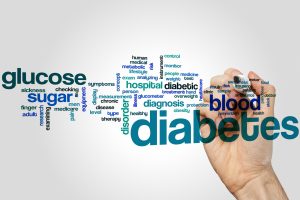 Nothing says “Good Morning” like a hot cup of coffee. Coffee can be healthy as a part of your morning routine or a pick-me-up on your way to work. Moderate coffee intake has been shown to improve cognitive health and depression. Also, a 2014 study showed that those who drank three to five cups of coffee daily had lower heart disease risk. Furthermore, a recent study has shown women who drink coffee to have lower diabetes risk.
Nothing says “Good Morning” like a hot cup of coffee. Coffee can be healthy as a part of your morning routine or a pick-me-up on your way to work. Moderate coffee intake has been shown to improve cognitive health and depression. Also, a 2014 study showed that those who drank three to five cups of coffee daily had lower heart disease risk. Furthermore, a recent study has shown women who drink coffee to have lower diabetes risk.
Diabetes and Caffeine
A study in Portugal looked at the caffeine intake of patients with diabetes over a period of 11 years. Women who consumed 1-2 cups of coffee had a 57-percent lower risk of dying over the study period than those who did not consume caffeine. For women who drank more than 2 cups of coffee, the death risk was two-thirds less. Further, women who drank the most tea had over three-fourths less chance of dying from cancer than those who drank none.
It is thought that the phytochemicals and antioxidants in coffee and tea can improve health outcomes. Also, older research shows that coffee and tea can improve the way insulin uses glucose for energy. It is not known why improved outcomes were seen in women and not men. However, it is thought that hormonal or non-hormonal factors related to heart health may have something to do with it.
How Can I Reduce Diabetes Health Risks?
Besides caffeine, there are many ways you can lower your risk of diabetes-related health risks.
- Eat a balanced diet: A balanced diabetes-friendly diet contains rich sources of lean proteins and fiber-rich foods. Also, be sure to limit high-sugar and high-sodium processed foods and drinks to keep blood glucose levels stable. Finally, be sure to eat three meals a day and healthy snacks in between. You should balance meals and snacks with protein and a source of fiber. This balance helps to lower your chances of having blood sugar highs and lows.
- Stay active: Walking, biking, swimming, jogging, and dancing are just some ways you can stay active to control diabetes. Being active at least 30 minutes a day five times a week can help manage weight and improve blood glucose levels.
- Managing stress: Stress can cause a person to engage in poor eating habits and being inactive. Therefore, using stress management techniques such as relaxation breathing, yoga, and prayer can improve energy levels, sleep, and overall well-being.
- Quit Smoking: Smoking can narrow blood vessels. In turn, narrow vessels make it harder for blood to get to the body’s tissues and organs. Therefore, smoking can damage nerves and increase blood pressure. Both of these health factors can increase risk of diabetes health issues.
- Take diabetes-friendly supplements: The Vitamin D Council reports that vitamin D can improve the way insulin uses energy in the body. Yet, there are also supplements such as Glucarex that can help improve diabetes outcomes. Chromium, cinnamon, and alpha-lipoic acid can also help improve blood glucose levels. Glucarex by Vita Sciences contains natural compounds such as these which can help with weight loss, metabolism, and managing blood glucose levels.
-written by Staci Gulbin, MS, MEd, RD, LDN
Sources:
American Heart Association (August 2015) “Living Healthy With Diabetes”
Ding, M., et al. (2014) “Long-Term Coffee Consumption and Risk of Cardiovascular Disease” Circulation,
Medline Plus (September 14, 2017) “Can Coffee or Tea Extend the Survival of Diabetes?”
National Institute of Diabetes and Digestive and Kidney Diseases (November 2016) “Diabetes Diet, Eating, and Physical Activity”
Vitamin D Council (July 2013) “Type II Diabetes”
 When you hear about brain health, you may think of lowering stress and anxiety. However, having a healthy brain also involves reducing risk of stroke as well as memory conditions like Alzheimer’s and dementia. A recent report has found that keeping your body healthy is vital to keeping your brain healthy.
When you hear about brain health, you may think of lowering stress and anxiety. However, having a healthy brain also involves reducing risk of stroke as well as memory conditions like Alzheimer’s and dementia. A recent report has found that keeping your body healthy is vital to keeping your brain healthy. Do you skip breakfast? Does your busy schedule make it hard to eat in the morning? Are you just not hungry in the early hours of the day? You may have heard that breakfast is the most important meal of the day. Recent research has found that this may be true. Skipping your morning meal can deprive your body of many important nutrients vital to overall health.
Do you skip breakfast? Does your busy schedule make it hard to eat in the morning? Are you just not hungry in the early hours of the day? You may have heard that breakfast is the most important meal of the day. Recent research has found that this may be true. Skipping your morning meal can deprive your body of many important nutrients vital to overall health. recent report by the Centers for Disease Control and Prevention (CDC) says that over 100 million people in the United States have diabetes or prediabetes.
recent report by the Centers for Disease Control and Prevention (CDC) says that over 100 million people in the United States have diabetes or prediabetes.
 reflux occurs for twice a week for more than a few weeks. Uncontrolled GERD can lead to respiratory problems or conditions such as esophagitis, which is an inflammation of the esophagus.
reflux occurs for twice a week for more than a few weeks. Uncontrolled GERD can lead to respiratory problems or conditions such as esophagitis, which is an inflammation of the esophagus. and keep a healthy weight for life.
and keep a healthy weight for life.